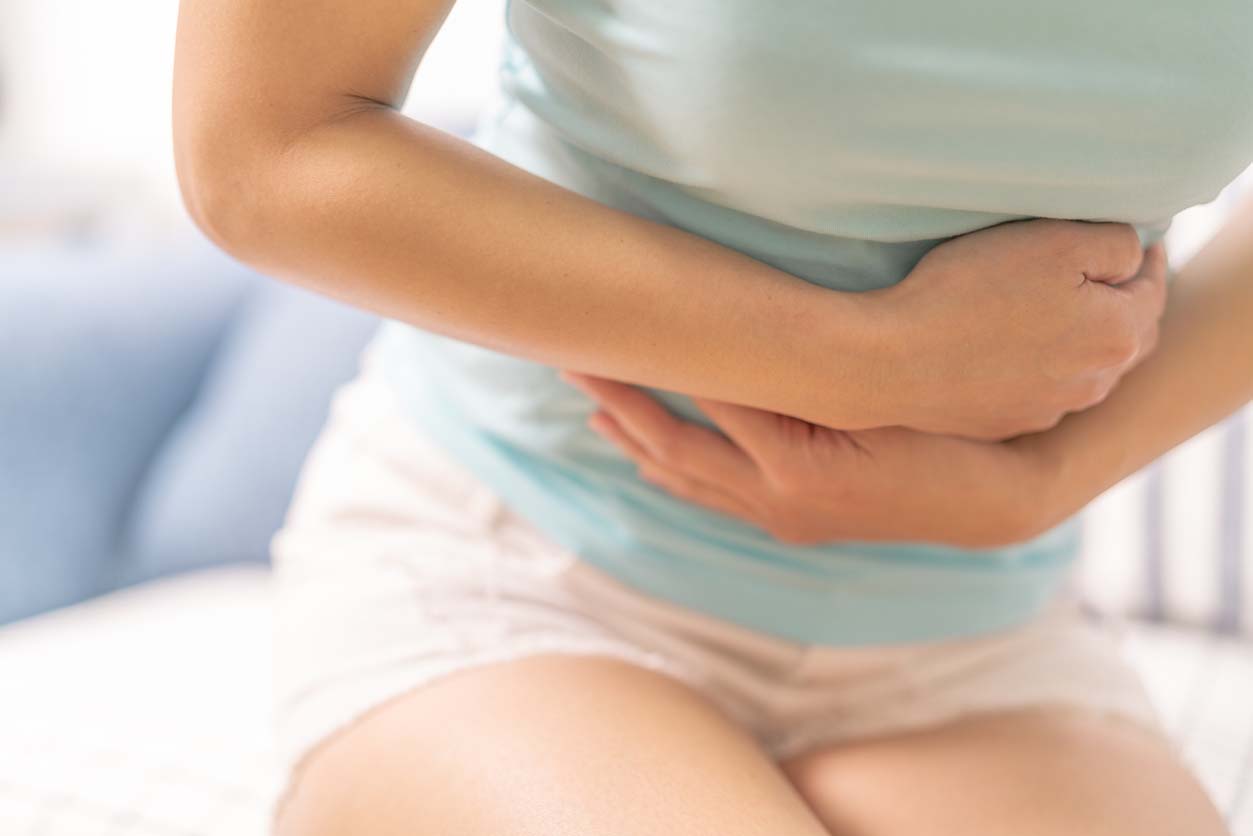Stomach pain: what’s behind it?
Stomach pain can have many causes: a sumptuous feast, stress – or a serious illness. Here you can find out what to look out for and what you can do yourself.
Usually harmless – but not always
Does this sound familiar to you? You enjoy a wonderfully sumptuous meal – and soon experience an unpleasant feeling of fullness and pain in the stomach area. Diet-related complaints such as these occur frequently and are usually harmless. They are triggered by eating lots of food as well as by fatty and/or spicy foods that irritate the stomach lining and strain the digestive system. Teas, warm compresses, rest and a little patience – until the stomach has done its digestive work – provide relief.
Unfortunately, stomach pain is not always so easy to treat. This is because pain in the upper abdomen can have many causes, depending on whether it feels crampy, burning, pressing, piercing or stabbing. Sometimes other symptoms such as vomiting or constipation are also present.
Stomach pain can also be a serious disease. If the stomach pain is severe and/or persistent or is accompanied by other symptoms, you should therefore consult your GP for an accurate diagnosis and appropriate treatment.
There are many possible causes of stomach pain – everyday, but also stress-related and illness-related triggers. Here is a selection:
- Hunger: If the stomach is empty and the body needs food, this can irritate the stomach lining and cause a crampy feeling in the stomach.
- Disrupted digestion: Overeating, unhealthy eating habits, food intolerances and digestive problems such as heartburn, acid reflux and irritable bowel syndrome are often responsible for stomach pain. The pain is usually particularly pronounced at night and when lying down.
- Stomach ulcers: These are caused by damage to the protective layer of the stomach, often by infection with the Helicobacter pylori bacteria or by medication. Stomach ulcers can cause severe pain, usually after eating.
- Gastritis (inflammation of the lining of the stomach): There are various possible triggers for gastritis. These include infections, alcohol, stress and medication. In addition to stomach pain, gastritis also causes nausea, vomiting and loss of appetite.
- Gastrointestinal infections: Bacterial and viral infections of the gastrointestinal tract lead to stomach pain, usually accompanied by nausea, vomiting and diarrhoea.
- Stomach cancer: Stomach cancer is a serious disease that causes malignant tumours to form in the stomach. Symptoms include stomach pain, weight loss, loss of appetite, nausea and vomiting.
- Heart attack: In some people, a heart attack manifests itself not only as the typical chest pain, but also as stomach pain or a feeling of pressure and tightness in the upper abdomen.
- Stress: When we are under stress, it affects our stomach – for example, the production of stomach acid – and our digestion.
- Pregnancy: Stomach pain often occurs during pregnancy. On the one hand, hormonal changes play a role. On the other hand, the growing baby and the uterus put increasing pressure on the stomach, which can cause bloating, belching and heartburn.
If your stomach pain is related to eating, we have these tips for you:
- Remove greasy dishes from your diet. Choose easily digestible foods such as lean meat, low-fat fish, steamed vegetables, rice, oats and low-fat dairy products instead.
- Eat slowly and less at a time. Take time for your meals. Chew thoroughly and eat in small portions to avoid overloading your stomach.
- Do not eat large meals for at least two to three hours before bedtime. This will give your stomach enough time to digest the food before you lie down.
- Drink plenty of water to stimulate digestion and calm the stomach.
- Avoid stress, for example with effective relaxation techniques, regular exercise, meditation or yoga.
- If heartburn or acid reflux is the cause of your stomach pain, prescription acid-inhibiting medications may help.
Acute gastritis occurs when the gastric mucosa suddenly becomes inflamed. These symptoms may indicate gastritis:
- Stomach and back pain
- Pressure sensitivity
- Nausea
- Vomiting
- Loss of appetite
- Heartburn
- Bloating
Gastritis may cause more severe stomach pain at night and in the early morning. The stomach is empty at these times and the stomach acid can further irritate the inflamed mucous membrane.
If you suspect gastritis, you should contact your doctor. The following home remedies and simple measures can supplement your medical treatment and alleviate the symptoms of stomach inflammation:
- Drink lots of tea. Camomile tea has soothing properties, ginger tea has an anti-inflammatory effect and fennel tea has an antispasmodic effect.
- Reduce portion sizes. Smaller and more frequent meals put less strain on the stomach.
- Switch to a light diet and avoid foods that make gastritis symptoms worse (e.g. hot spices, fatty foods, alcohol, caffeine).
Look for light and well-tolerated meals to calm the stomach and promote digestion. These include the following foods:
- Low-fat soups: Clear, low-fat soups such as chicken or vegetable broth are easily digestible. To avoid further irritation, do not eat them too hot.
- Vegetables: Lightly cooked carrots, courgettes and pumpkins are particularly good for the stomach.
- Rice: White rice is ideal because it is lower in fibre.
- Bananas: They are easy to digest and can neutralise excess stomach acid.
- Oats: They can be mixed with water, milk, almond or rice milk and enjoyed hot or cold.
- Toast and rusks: They calm the stomach and help to absorb stomach acid.
- Camomile tea: Drink the tea slowly and in small sips.
Avoid foods and dishes that cause bloating or are greasy, spicy, very salty or high in sugar. Citrus fruits and acidic foods are also unsuitable if you have stomach pain. Avoid caffeine, carbonated beverages and alcohol.
